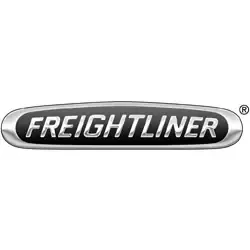Freightliner Sprinter 3500 Tire Pressure
Most common recommended tire pressure for Freightliner Sprinter 3500 is 55 psi based on year of production, trim and OEM tire size, but it maybe different for older models. It is imperative to confirm the exact tire inflation for your Freightliner Sprinter 3500 to ensure safety on the road. Always refer to your vehicle owner's manual for the correct tire pressure designated by vehicle's manufacturer.
Select your Freightliner Sprinter 3500 production year to see its recommended tire inflation.
| Model Year | Front Tires | Rear Tires |
|---|---|---|
| 2017 Freightliner Sprinter 3500 | 55 psi | 55 psi |
| 2016 Freightliner Sprinter 3500 | 55 psi | 55 psi |
| 2015 Freightliner Sprinter 3500 | 55 psi | 55 psi |
| 2014 Freightliner Sprinter 3500 | 55 psi | 55 psi |
Recommended Tire Pressure for Freightliner Sprinter 3500
Maintaining the recommended tire pressure for the Freightliner Sprinter 3500 is fundamental for ensuring the vehicle operates safely, economically, and efficiently. Optimal tire pressure is crucial for maximizing the van's load carrying capability, a vital aspect for commercial vehicles often used for transporting goods or passengers. Properly inflated tires reduce the risk of tire failure and accidents, which is of paramount importance for a vehicle designed for heavy-duty tasks. Furthermore, correct tire pressure enhances fuel efficiency by minimizing rolling resistance. This not only contributes to cost savings by reducing fuel consumption but also reduces environmental impact by lowering CO2 emissions. Adequately inflated tires also ensure even tire wear, thereby extending tire life and reducing the need for frequent replacements, which supports both economic and environmental aspects of vehicle maintenance. For these reasons, regularly checking and maintaining the tire pressure as recommended by the manufacturer is a simple yet effective way to contribute to the safe and efficient operation of the Freightliner Sprinter 3500.

All listed guides, data and/or calculations are for informational purposes only. TirePressure.com does not warrant or make any representations regarding the accuracy of or the results of the use of this information. Always refer to vehicle owner's manual for the correct tire pressure configuration.